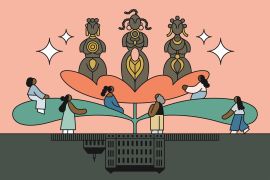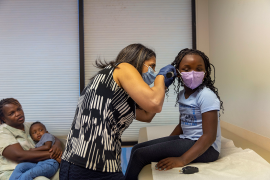By CQ Staff
November 9, 2011 -- A new international study shows that chronically and seriously ill adults fare the best when they have a stable relationship with a health care provider. And in the United States, the biggest problem revolves around the inability of these patients to get the care they need because they cannot afford it.
According to a Commonwealth Fund study being published last week, sicker adults in the United Kingdom and Switzerland—which have very different health systems—were most likely to have a medical home, with nearly three-quarters connected to practices that have characteristics of a medical home, compared to about 33 percent to 65 percent in the other nine countries. Chronically and seriously ill adults who received care from such a medical home were less likely to report medical errors, test duplication and other care coordination failures.
U.K. and Swiss patients also reported more positive health care experiences than sicker adults in the other countries: They were more likely to be able to get a same- or next-day appointment when sick and to have easy access to after-hours care, and they were less likely to experience poorly coordinated care, according to a release explaining the study.
The 2011 survey of more than 18,000 sick adults in Australia, Canada, France, Germany, the Netherlands, New Zealand, Norway, Sweden, Switzerland, the United Kingdom and the United States included people who reported they were in fair or poor health, had surgery or had been hospitalized in the past two years, or had received care for a serious or chronic illness, injury or disability in the past year. The study identified patients as having a medical home if they reported having a regular source of care that knows their medical history, is accessible, and helps coordinate care received from other providers.
For sick U.S. adults the problem is cost. Forty-two percent reported not visiting a doctor, not filling a prescription or skipping medication doses, or not getting recommended care—a significantly higher proportion than in all the other countries, and more than double the rates in Canada, France, the Netherlands, Norway, Sweden, Switzerland and the U.K.
"Despite spending far more on health care than any other country, the United States practically stands alone when it comes to people with illness or chronic conditions having difficulty affording health care and paying medical bills," Commonwealth Fund president Karen Davis said. She said such data points to the need for the coverage benefits in the health overhaul law as well as its provisions to control costs.
The survey was conducted by Harris Interactive, Inc. Telephone interviews were done between March 2011 and June 2011. The survey screened random samples of adults 18 and older to identify "sicker" adults—those who met at least one of four criteria: They rated their health as fair or poor; they reported receiving medical care for serious chronic illness, injury or disability in the past year; they had surgery or had been hospitalized in the past two years. The final study included 1,500 adults in Australia, 3,958 in Canada, 1,001 in France, 1,200 in Germany, 1,000 in the Netherlands, 750 in New Zealand, 753 in Norway, 4,804 in Sweden, 1,500 in Switzerland, 1,001 in the United Kingdom and 1,200 in the United States.


